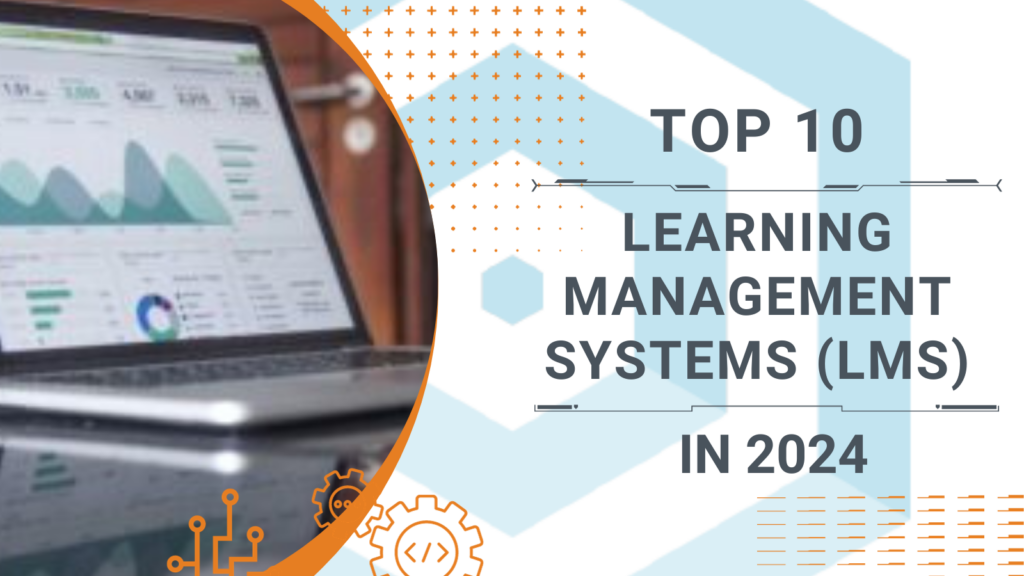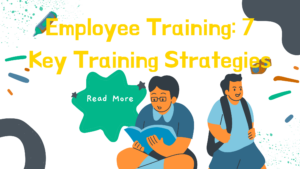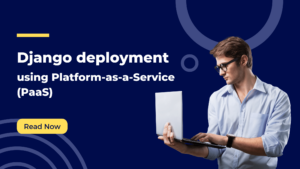Choosing the right Learning Management System is crucial. You need a platform that’s easy to use, yet powerful enough to meet all your educational or training needs.
You’re likely reading this article because you’re exploring options beyond a specific Learning Management System (LMS) that hasn’t met your expectations. Whether it’s a lack of features, high costs, or a complicated user experience, there are alternatives for you.
In this guide, we will help you navigate your LMS choices. We’ve compiled a list of the best LMS solutions in 2024, focusing on key features, user experience, analytics, and pricing.
Key Takeaways
Here’s what you need to consider when looking for the best LMS (Learning Management System) alternative:
- Features and Customization: Consider the available features and how they can be customized to meet your team’s needs.
- User Experience and Interface: The LMS’s ease of use and intuitiveness should be considered to ensure a smooth learning experience for administrators and learners.
- Integration Capabilities: Check if the LMS can seamlessly integrate with your existing tech stack.
- Analytics and Reporting: Look for an LMS that offers robust analytics and reporting features allowing you to track learner progress and gather insights on training effectiveness.
- Pricing and Scalability: Evaluate the cost of the LMS in your business’s current state and consider how scalable the solution is as your business grows.

Table of Contents
What is a Learning Management System?
A Learning Management System (LMS) is a platform designed to deliver, manage, and track online training content for organizations ranging from businesses to educational institutions. These systems are a central hub for learning materials, resources, discussions, and user analytics.
These tools can be used to train employees and customers, deliver professional development sessions, teach online courses, and more!
Key Features of Learning Management Systems
Learning Management Systems seek to streamline training and educational resources’ design, delivery, and assessment. However, each LMS offers its own key features to accomplish that goal. When choosing your LMS, keep the following features top of mind:
- User Management: Allows you to add, manage, and group users efficiently.
- Content Delivery: Facilitates storing and distributing educational content in one location.
- Assessments: Provides tools for creating quizzes and tests and tracking performance.
- Analytics: Offers insights into learner performance and course effectiveness.
- Mobile Learning: On-the-go access to training materials and resources encourages self-paced learning and increases course completion rates.
- Social learning: Includes forums, chats, or peer reviews that allow for “real-world” applications and increase student engagement.
Integrations: Seamless connectivity with other software allows your LMS to integrate into your current ecosystem without excessive manual setup.
Pros & Cons of Using an LMS
Pros:
From streamlined content delivery to enhanced learner engagement and comprehensive performance tracking, using an LMS offers various benefits.
- Centralized Learning: All educational materials are stored in one location, making access and management straightforward.
- Scalable Content: Easily adapt and expand your educational content to meet the needs of a growing audience.
- Data-Driven Insights: Real-time analytics help you understand user behavior and improve course effectiveness by identifying ineffective training modules or resources.
- Compliance and Certification Tracking: Automated tracking ensures users meet industry standards and certifications.
- Cost-Efficiency: Reduced administrative and material costs make LMS a financially wise choice.
Cons:
- Learning Curve: Initial setup and user training can be time-consuming.
- Costs for Premium Features: Advanced functionalities often come at an additional price.
- Software Updates: Frequent updates may disrupt the learning process, as users navigate changes in usability or functionality.
- Potential Lack of Personalization: One-size-fits-all courses may not cater to individual learning styles.
Limited Offline Capabilities: Internet access is generally required, limiting offline learning opportunities for non-downloadable content.
Our Top 10 Learning Management Systems
1. Appsembler
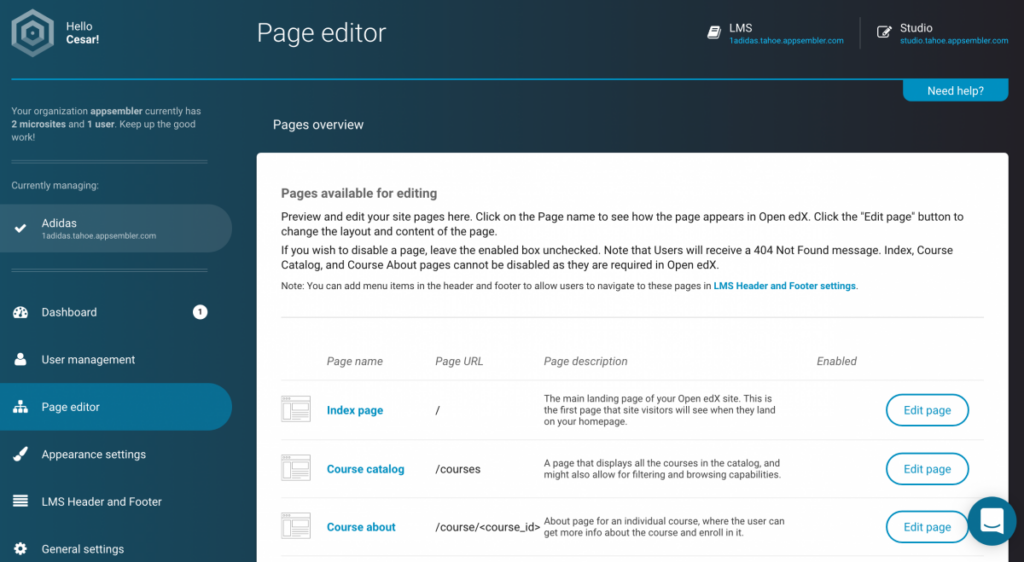
Key Features:
- Advanced Analytics
- Guided onboarding
- Gamification features (i.e., course completion certificates)
- Integrations through Learning Tools Interoperability (LTI) and XBlocks
Appsembler stands out among its competitors, providing an intuitive, streamlined design that significantly reduces the implementation learning curve. With heavy emphasis on analytics and reporting, educators can access critical data that guide the development and structure of online courses, regardless of subject area.
Appsembler further sweetens the deal by offering fully integrated Virtual Labs, designed to provide software training through quality hands-on learning experiences. This feature is not necessary to use the LMS, but it is an exceptional addition, allowing users to engage in real-world applications of what they are learning.
To accompany the features and benefits of this platform, Appsembler offers a free academy housing resources on using Tahoe LMS, Virtual Labs, and course development!
There is no guessing or hidden fees when it comes to Appsembler’s pricing options for Tahoe LMS. The three starting price options are laid out for you:
- Starter Plan – $500 per month
- Pro Plan – $1,200 per month
- Premium Plan – $2,500 per month
2. TalentLMS

Key Features:
- Intuitive user interface
- Pre-made course libraries
- Mobile Learning
TalentLMS stands out for its intuitive user interface and range of pre-built content libraries. At the same time, if you want to create a course that is geared toward your individual organization, that can take time. Their prebuilt library sets you up to start implementing courses on day one.
With self-led and essential instructor-led training options, you can choose which modules and topics your users learn asynchronously and which they have to touch base with an instructor on.
Pricing for TalentLMS starts at $69 per month, billed annually. However, standard pricing does not include the TalentLibrary. There is a substantial pricing increase to add the library to any plan.
3. 360Learning
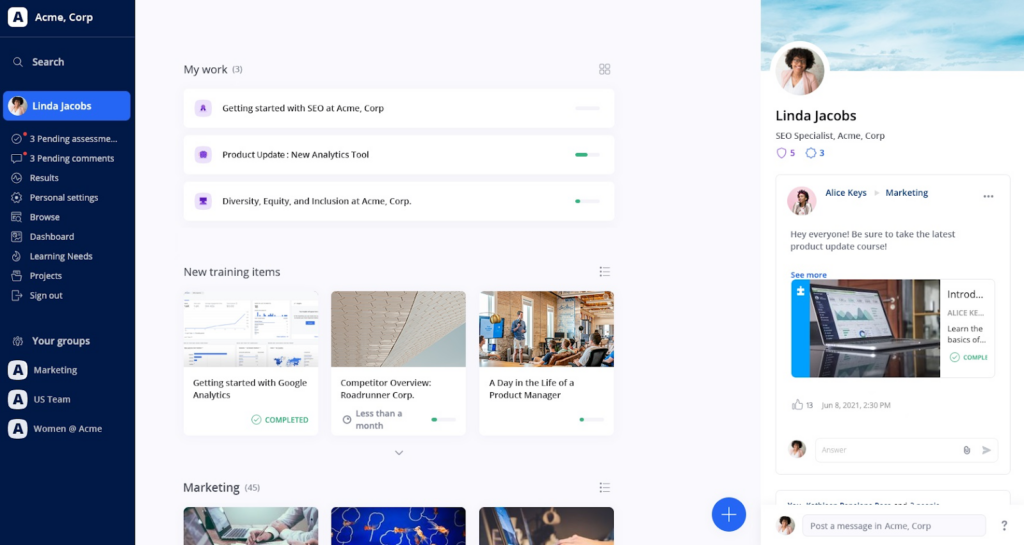
Key Features:
- Customized learning paths
- HCM/HRIS sync
- Targeted reporting on groups, assignments, and users
- Custom 360Learning API Integrations
360Learning’s focus is creating collaborative learning experiences for organizations. With various learning types to choose from asynchronous self-paced to synchronous virtual classrooms, users and administrators can develop course pathways attuned to their organization’s and preferences’ needs.
This LMS provides tools for content creation and analytics for understanding learner behavior.
360Learning offers two pricing plans: Team and Business. The Team plan starts at $8 per user per month, with a limit of 100 users.
4. Learn Worlds
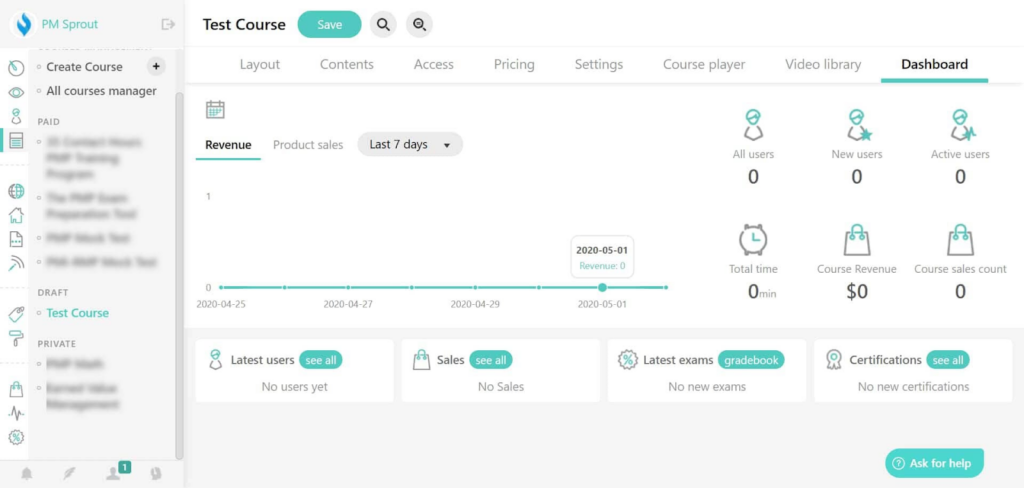
Key Features:
- Interactive Video Lessons
- SCORM Compatibility
- No-code Mobile App Builder
LearnWorlds offers a variety of engaging learning activities, including video, audio, quizzes, and certifications to pique learner interest. Each of the courses in this LMS can be modified to various learning types, allowing oversight and management of course content.
In the Report Center, users will find real-time KPIs providing insight into user progress and engagement. These reports can be automated to be shared with the desired stakeholders.
The no-code Mobile App Builder allows organizations to develop their own branded app for users to take their learning on the go.
LearnWorlds offers a 30-day free trial for all three plans: Business Learning Center, starting at $255 per month, Learning Center + Mobile Apps, and High Volume and Enterprise.
5. Absorb

Key Features:
- Reporting and analytics dashboards
- Mobile App
- Automated administrator tools
Absorb LMS is known for its incorporation of artificial intelligence and automation. Administrators praise this tool for providing advanced tools, including custom tracking dashboards, customizable analytics, and cross-course evaluation. This LMS offers the tools to thoroughly assess employee performance and training goals.
Unfortunately, Absorb does not publish its pricing on its website. Interested users will need to contact their sales team to receive a quote.
6. Edunext

Key Features:
- SAML2/API Integration
- Multitenancy Options
- Advanced XBlocks
- Advanced Reporting
Edunext (formerly eFront) offers impressive scalability and advanced reporting capabilities, all powered by Open edX. Its multitenancy allows large organizations to manage learning across various departments effectively, making it a top choice for scalable, detailed learning solutions.
Administrators love the self-registration features available through Edunext. With the option of open self-registration or self-registration with admin approval, Edunext helps diminish tedious manual administrative tasks.
Edunext offers a customizable user-based pricing scale, with their Basic plan starting at $50 per month for 50 users.
7. Docebo
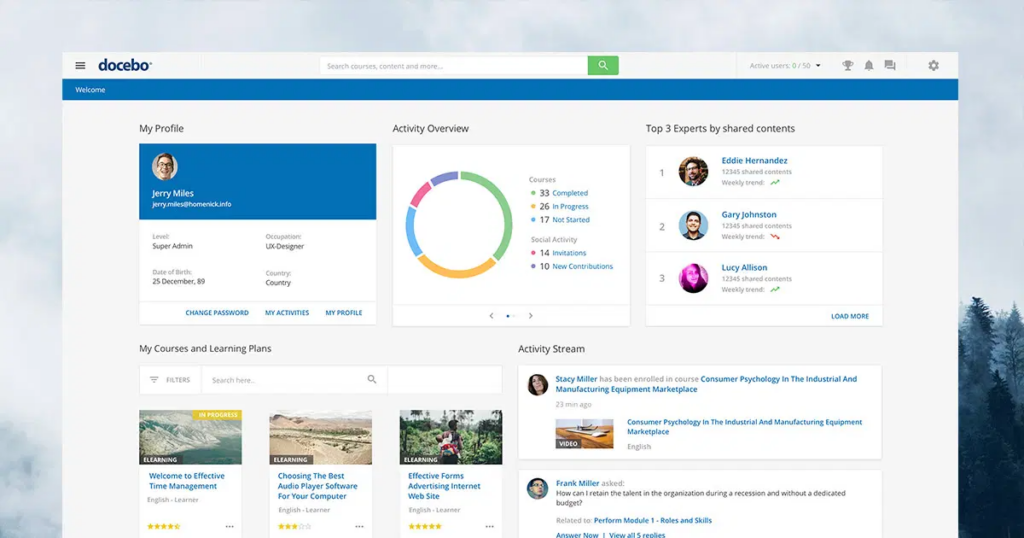
Key Features:
- Mobile App
- Gamification features, like certificates for completion
- Powerful configuration engine
Docebo is an AI-powered LMS designed for enterprises. Docebo offers a futuristic approach to learning with AI-powered learning pathways and social learning capabilities. The platform supports eCommerce functionalities for those looking to monetize their courses, making it an innovative choice for diverse learning objectives.
Users can create customized pages targeted towards specific audiences using a simple drag-and-drop process. The platform offers various free extensions, including e-commerce, custom domains, and automations, to enhance customizability.
Docebo does not offer pricing on their site. Interested users must contact their team to receive a quote, considering this platform is designed for enterprise clients.
8. D2L Brightspace
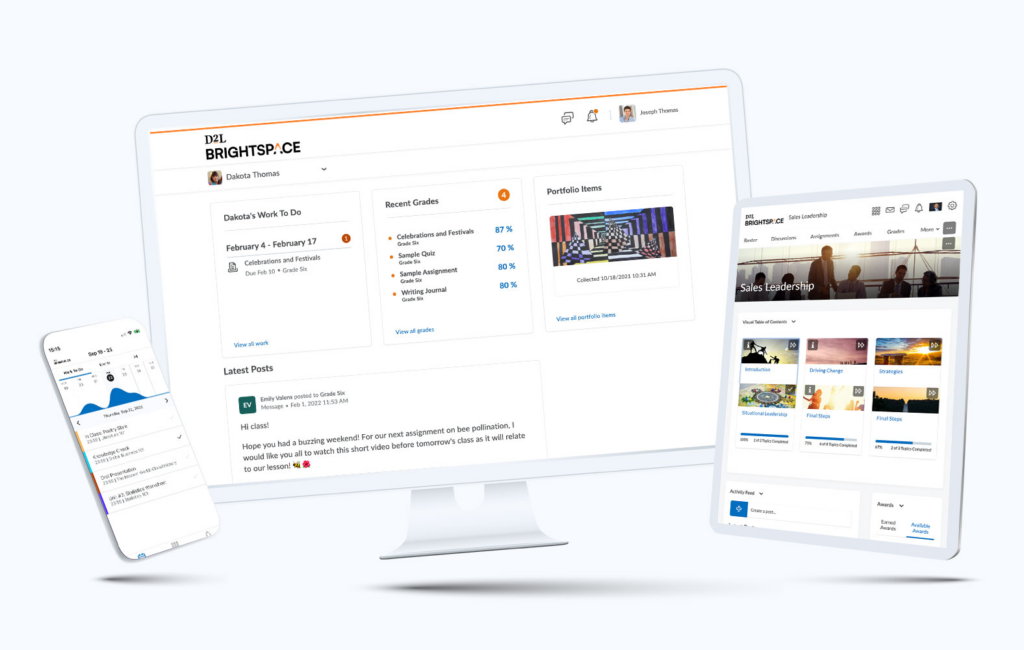
Key Features:
- Mobile-first design
- Advanced Analytics and Reporting
- Cross-course skills tracking
D2L Brightspace is a flexible LMS platform designed to promote life learning by offering LMS solutions for grade school, higher education, corporate, association, and government audiences.
D2L’s mobile-first design supports learner experience and accessibility with a responsive design that adapts to the device. Advanced analytics and reporting features like Insights Adoption, Course Learner Engagement, and Assessment Quality guide the delivery and design of courses within the LMS.
D2L’s basic plans for all of the above audience solutions are free. However, further pricing information can only be obtained by requesting a quote.
9. Moodle LMS

Key Features:
- Open source platform
- Certified integrations and over 2,000 open-source plugins
- Mobile Compatibility
- Multi-Language Support
Moodle LMS offers a robust, secure, and customizable platform for educational needs, excelling in analytics and reporting features that refine teaching strategies.
The platform’s mobile compatibility and multi-language support make it a flexible and accessible choice, especially for organizations with global users. Moodle offers customizability on course approach, allowing teams to create courses that are entirely remote, fully synchronous, or a combination of the two.
Moodle offers five standard plans, with the Starter plan costing $120 annually. Premium solutions are available; however, users must receive a quote from their sales team.
10. Open edX Tutor

Key Features:
- Open Source
- Scalable: Built to handle small to massive enrollments.
- Extensive plugin options
Open edX Tutor stands out for its open-source flexibility, offering unmatched customization options. Open edX Tutor provides the appeal of being able to pop into a browser rather than having to download extra software. This does not affect mobile compatibility, however.
The platform offers various integrations and can create custom API integrations to incorporate your existing tech stack. With native CMS capabilities, users can publish and repurpose content in multiple ways.
Open edX Tutor is a free platform.
Appsembler: Take Charge of Your Team’s Learning Management
In a crowded field of LMS, Appsembler distinguishes itself by offering a highly personalized, flexible, and scalable learning environment.
Customized learning paths provide learning experiences tailored to individual needs, ensuring each team member is fully engaged and not left behind.
Appsembler provides seamless integration with existing systems, sidestepping the common pitfalls and headaches usually associated with new software adoption.
Finally, our real-time analytics allow you to dynamically adapt your learning strategy by monitoring user engagement and performance.
Don’t settle for less when you can optimize your organization’s learning and development strategy with Appsembler. Start a demo or book a consultation today to explore how Appsembler can elevate your LMS approach.
